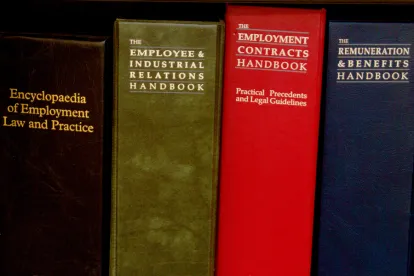We invite you to view Employment Law This Week - a weekly rundown of the latest news in the field. We look at the latest trends, important court decisions, and new developments that could impact your work.
1. President Trump Taps Judge Kavanaugh for the Supreme Court
Our top story: President Trump nominates Judge Brett Kavanaugh to the Supreme Court of the United States. President Trump named his pick last week for the seat that will be vacated by Justice Anthony Kennedy. Judge Kavanaugh was appointed to the U.S. Court of Appeals for the District of Columbia Circuit in 2006 by President George W. Bush. Senate hearings are likely to be contentious with such a slim GOP majority, so the administration is touting Judge Kavanaugh’s “anti-regulation” record and business-friendly rulings in order to smooth the path to confirmation. Although Judge Kavanaugh clerked for Justice Kennedy, many see Kavanaugh’s judicial philosophy as more similar to that of the late Justice Antonin Scalia.
“Management and employers will, I think, have a friend in Judge Kavanaugh on the bench. It's reflected in several of his opinions while he was on the Court of Appeals. You can see that in cases like Adeyemi, where he said that courts shouldn't be super personnel departments. You see it in that same case where he says they shouldn't micromanage what employers do. You see it in many other cases where he says businesses need to do what businesses do, and we need to just make sure they stay within the law. Employees will actually be pleasantly surprised by Judge Kavanaugh, as well. He's shown, in several of his decisions, a real fire to suppress discrimination. It can be seen in the Ayissi-Etoh case, where he said that one single use of the N-word in and of itself could establish a hostile work environment. He went out of his way to describe the history of the offensiveness of that word. Similarly, in the Ortiz-Diaz case, he himself actually prompted the DC Circuit to reverse itself and find that lateral transfers, if racially motivated, could violate Title VII.”
2. Pending NJ Employment Legislation
New Jersey tees up employment legislation. Several bills pending in New Jersey would, if passed, significantly impact employers. New Jersey Governor Phil Murphy, sworn in on January 16, has already signed a pay equity law and legislation mandating paid sick leave. Now, the New Jersey Senate has approved bills that ban salary history questions, limit access to employee credit reports, and prohibit nondisclosure agreements relating to discrimination or harassment claims. These bills await further action by the New Jersey General Assembly and the governor.
3. California Court: Hospital’s Policy of Rounding Hours Is Legal
A California appeals court has found that a Los Angeles hospital’s policy of rounding employees’ hours does not violate the state’s wage and hour laws. The hospital’s system automatically rounds workers' hours up or down to the nearest quarter-hour. The court found that the policy is legal because there was no evidence that it had resulted in the systematic loss of wages.
4. States Move Ahead of Stalled Federal Policies
And still more states are taking action in the face of stalled federal employment policies. The Pennsylvania Department of Labor has proposed regulations that would increase the overtime salary threshold significantly. The changes would bring Pennsylvania law in line with the 2016 proposed Fair Labor Standards Act regulations, which were blocked before they took effect. Massachusetts recently enacted the "Grand Bargain," compromise legislation that increases the minimum wage to $15 an hour, creates a sales tax holiday, phases out Sunday and holiday premium pay requirements, and introduces new paid family and medical leave provisions.
This week’s stories include ...





 />i
/>i

